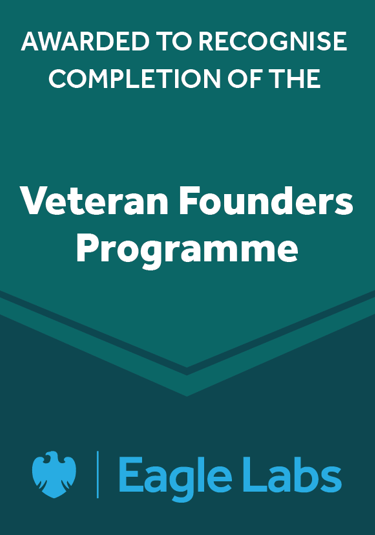
#8: Success Stories: How Coaching Has Transformed Leaders and Teams
Jamie Lennon
8 min read
Success in leadership is rarely accidental. Behind every high performing team, every confident decision maker and every stable department, there is a leader who has developed themselves deliberately. Yet many leaders only reach their full potential once they experience the power of coaching. They describe it as the turning point, the moment they finally understood how to lead with confidence, clarity and purpose.
Coaching changes people. It changes how they think, how they behave and how they influence others. Most importantly, it changes their results. But the impact of coaching is often best understood not through theory, but through real stories of transformation.
In this article, we share anonymised examples drawn from our experience working with leaders at different levels and in different environments. These stories highlight not only what coaching achieves, but why it has such profound and lasting effects.
The details are adapted to protect confidentiality, but the outcomes are real. The transformations are real. And the impact these leaders had on their organisations was significant.
The Leader Who Found Their Confidence Again
One senior leader came into coaching feeling overwhelmed, exhausted and quietly unsure of themselves. On paper they were highly successful. They had years of experience, a reputation for excellence and the respect of colleagues. Yet privately, they doubted almost every decision they made.
Their team noticed. Meetings dragged because decisions were delayed. Staff felt uncertain because priorities changed frequently. Confidence was slipping, and the leader knew it.
In our early sessions, we explored the internal narratives driving their hesitation. They had been promoted quickly and never truly believed they deserved the role. They felt they had to work twice as hard to justify their position. They were terrified of making a mistake.
As they gained self-awareness, something shifted. They began to understand the difference between pressure and fear. Between responsibility and perfectionism. Between leadership and self-sacrifice.
Over the course of coaching, they developed a new identity, grounded in clarity and self-belief. Their decision making accelerated. Their communication became more direct and consistent. Their team became more settled and productive. Staff even commented that it felt like a weight had been lifted from the entire department.
The organisation benefited immediately. Projects progressed faster. Staff morale increased. Turnover decreased. Confidence returned not just to the leader, but to the people around them.
This transformation began with coaching. It began when someone finally held up a mirror and helped them see who they truly were as a leader.
The Manager Who Stopped Avoiding Difficult Conversations
Another common transformation involves conflict. Leaders often avoid difficult conversations because they fear damaging relationships, upsetting staff or being perceived as harsh. One mid-level manager we worked with avoided conflict for years, hoping issues would resolve on their own.
They never did.
Underperformance went unchallenged. Strong performers became resentful. Tension built quietly across the team. By the time the manager sought coaching, the situation had deteriorated to the point where staff no longer trusted them to lead.
In coaching, we examined what lay beneath the avoidance. It was not lack of knowledge. It was fear. Fear of not being liked. Fear of being wrong. Fear of upsetting people. Fear of being seen as inexperienced.
Through guided reflection and practice, they learned how to separate conflict from confrontation. They developed structured approaches for challenging conversations. They learned how to set boundaries, deliver feedback and manage emotional responses.
The change was extraordinary. Within weeks, they began addressing issues early and confidently. Staff felt relieved. Performance stabilised. Team relationships improved. Senior leaders noticed the difference almost immediately.
Coaching transformed not only the manager’s competence, but their identity. They no longer feared conflict. They understood its value. They embraced it as an essential part of leadership.
The team, once tense and fragmented, became cohesive and productive. The manager became one of the most respected leaders in the department.
The Team That Rediscovered Its Purpose
Sometimes coaching is not just about individuals. It is about the team as a whole. One team we worked with had become directionless. Their leader felt stuck. Staff were frustrated. Priorities were scattered. Communication was inconsistent. Blame circulated quietly among team members, even though no one said it aloud.
The leader felt responsible but did not know where to begin. Their confidence was slipping. They were exhausted by firefighting instead of leading.
Coaching helped them regain control.
We worked on:
Clarifying purpose
Establishing priorities
Strengthening communication
Rebuilding trust within the team
Setting realistic expectations
Delegating strategically
Introducing accountability frameworks
As the leader changed, the team changed. Meetings became shorter and more focused. Staff felt listened to. Decisions became more consistent. Performance improved. The team began taking pride in their work again.
Within six months, the department that had once been described as difficult became one of the organisation’s most stable units.
This is the power of coaching. When you transform a leader, you transform a team. And when you transform a team, you transform the results they deliver.
The High Performer Who Lost Their Way and Got It Back
High performers often experience burnout before anyone realises something is wrong. They are used to delivering results. They are used to being reliable. They are used to taking on more work without complaint.
One exceptional leader we coached had always performed at a high level. They were known as dependable, intelligent and driven. Yet over time they had become exhausted. Their performance was slipping. They were irritable, withdrawn and struggling to stay motivated.
They believed something was wrong with them. They worried they had reached their limit.
In our sessions, it became clear that they had been carrying the emotional load of the entire team. They did not delegate because they felt they needed to protect others. They said yes to everything because they believed saying no would disappoint others. They absorbed everyone’s problems while ignoring their own.
Coaching helped them understand the difference between responsibility and over responsibility. They learned how to delegate without guilt, set boundaries confidently and trust their team to take ownership.
The change was immediate. Their energy returned. Their motivation increased. Their team stepped up and took more initiative. Their performance improved dramatically. They became more present, more strategic and more confident.
Their senior leaders later described the transformation as one of the most significant they had seen.
Coaching helped them rediscover the leader they had forgotten they were.
The Emerging Leader Who Rose Faster Than Expected
Many organisations underestimate the potential of their rising leaders. They assume development must come slowly. One emerging leader we coached was talented but uncertain. They lacked confidence in senior discussions. They felt overshadowed by more experienced colleagues. They were hesitant to share their opinions, even though their insights were strong.
In coaching, we explored their self-perception. They realised they had been waiting for permission to lead rather than stepping into leadership intentionally.
We worked on:
Presence
Influence
Communication
Strategic thinking
Identity
Confidence
Decision making
Slowly, they began to speak up. They contributed ideas. They challenged respectfully. They presented with authority. Their credibility grew quickly.
Within a year, they were promoted twice. Senior leaders began seeking their input. Their career trajectory changed dramatically.
Coaching did not simply improve their skills. It accelerated their entire professional journey by unlocking potential that had been waiting beneath the surface.
The Team Under Pressure That Found Stability Through Coaching
Some teams operate in high pressure environments where emotional load, risk and workload collide. We have coached leaders in clinical settings, emergency services and operational roles where the stakes are high and the pressure is relentless.
In one such setting, a team had reached breaking point. Absence was rising. Conflict was increasing. Morale was collapsing. Staff were emotionally exhausted.
The leader felt overwhelmed. They were trying to support their team, deliver operational requirements and maintain stability, but they were burning out.
Coaching became the anchor that allowed them to regain control.
We explored:
Emotional regulation
Boundary setting
Team communication
Prioritisation
Psychological safety
Support structures
Delegation
Stress management
As the leader became more grounded, the team followed. Psychological safety increased. Absence reduced. Confidence grew. Staff began supporting each other more consistently. Performance returned.
The organisation later reported that coaching the leader had been the turning point that prevented further decline.
In high pressure environments, leadership behaviour is the difference between stability and breakdown. Coaching equips leaders to carry that responsibility without sacrificing themselves.
The Leader Who Transformed Their Reputation
Reputation can change an entire career. One leader we worked with had developed a reputation as reactive, difficult to approach and inconsistent. Their intentions were good, but they were overwhelmed. They communicated bluntly under pressure. They misinterpreted feedback as criticism. They struggled to regulate their emotions.
Their team found them unpredictable. Senior leaders found them challenging. The leader knew something needed to change but felt unsure how to begin.
Coaching helped them understand their triggers, patterns and behaviours. We explored how stress shaped their reactions, how miscommunication created tension and how small adjustments could produce major shifts.
They began practising emotional regulation techniques. They learned how to communicate with more clarity and calmness. They set boundaries that protected their wellbeing. They built confidence in leading difficult conversations.
Within months, feedback changed. Staff described them as calmer, more consistent and more supportive. Senior leaders noticed increased stability and clarity. Their reputation shifted from reactive to resilient.
Coaching changed how they behaved. But it also changed how they were perceived. And perception shapes opportunity.
The Common Thread: Coaching Creates Leaders People Want to Follow
Across every success story, certain themes appear repeatedly.
Leaders become more self aware. They understand their impact.
They become more confident and decisive.
They communicate with intention and clarity.
They handle conflict early and constructively.
They regulate their emotions with composure.
They strengthen relationships and trust.
They lead proactively rather than reactively.
They build healthier, more resilient teams.
They stop firefighting and start leading.
These changes are not superficial. They shape culture. They strengthen performance. They reduce cost. They increase stability. They elevate entire organisations.
The ripple effect of coaching is enormous. When one leader transforms, everyone around them benefits.
Why Coaching Creates Such Powerful Transformations
The success stories described above are not coincidences. They are the result of specific mechanisms that make coaching uniquely powerful.
Coaching works because it provides:
Clarity
Self awareness
Reflection
Challenge
Accountability
Emotional support
Practical strategies
Identity transformation
Leaders develop not only the skills to lead but the internal foundations that sustain leadership.
No other development method changes behaviour at this depth.
A Perspective from Leading Elite High-Performing Teams
Our coaching is shaped by years of elite military and clinical leadership where clarity, emotional regulation and decision making under pressure were essential. We understand how leaders think, what pressures they face and what support they need to grow.
This allows us to coach leaders with honesty, depth and credibility. The leaders we work with do not receive generic advice. They receive targeted development that transforms their capacity to lead.
Their success becomes the organisation’s success.
Your Transformation Could Be the Next Story
Every leader has potential waiting to be unlocked. Every team can become more stable, more confident and more effective. Coaching is the catalyst.
If you want to become the leader your organisation needs you to be, or if you want your team to operate with greater confidence and clarity, we are ready to help you achieve that transformation.
You could be the next success story.




READY TO TALK?
If you're ready to discuss your training compliance or business consultancy needs, or you simply want to understand our services more, click the button below to schedule a FREE 30 minute call, and allow us to answer all your questions and provide insights into the best course of action for your business.
© 2026 1664 Training Solutions Ltd. | Privacy Policy
Website designed by Mpowering Solutions


1664 TRAINING SOLUTIONS LTD.
Our Services:


